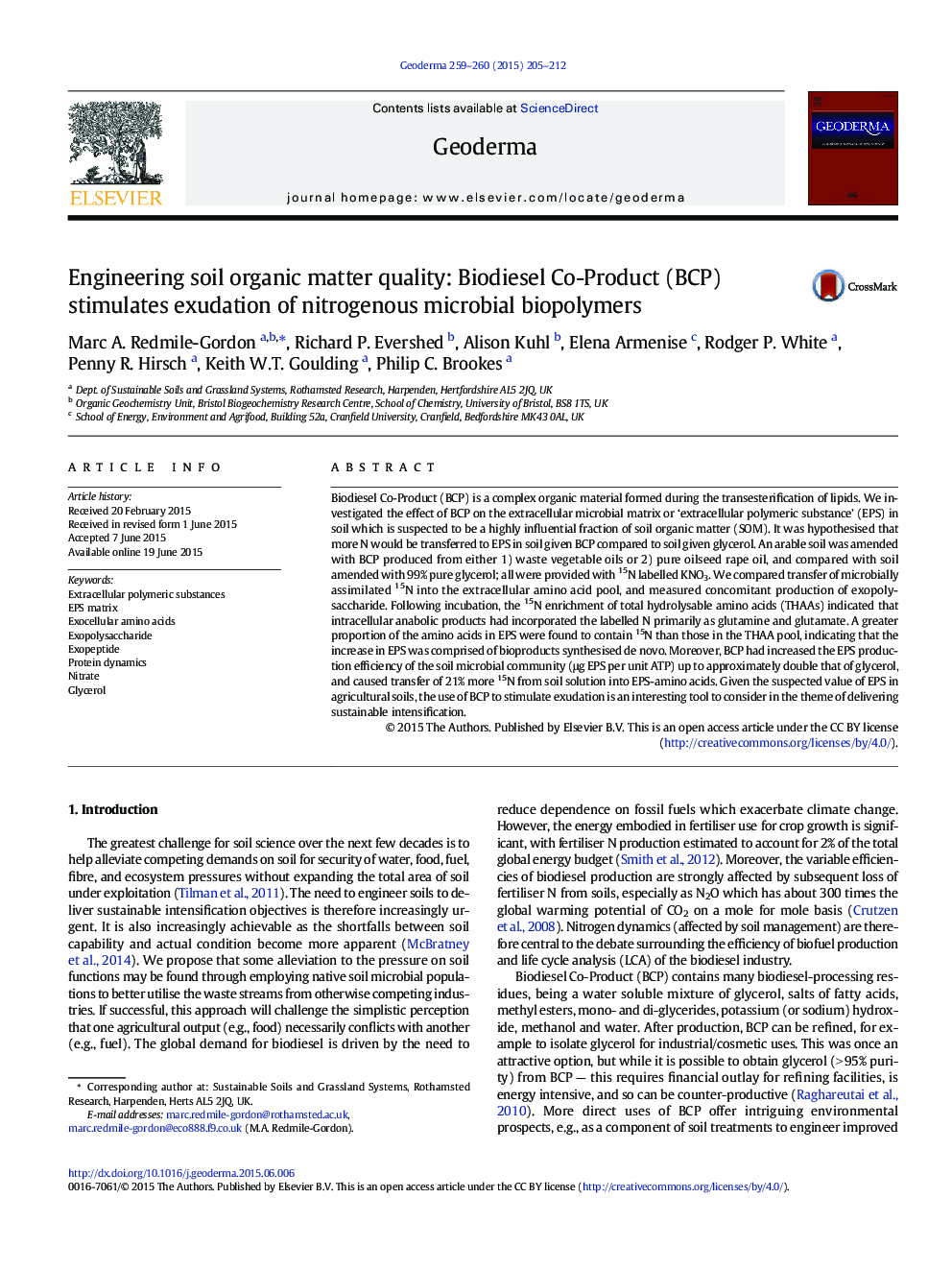| کد مقاله | کد نشریه | سال انتشار | مقاله انگلیسی | نسخه تمام متن |
|---|---|---|---|---|
| 6408519 | 1629456 | 2015 | 8 صفحه PDF | دانلود رایگان |

- BCP made from waste oils (BCPR) resulted in the highest EPS-production efficiencies.
- BCPR resulted in the greatest 15N accumulation in extracellular bioproducts.
- Glycerol resulted in the greatest 15N accumulation in intracellular bioproducts.
- δ15N of extracellular amino acids shows that resin extracts EPS synthesised de novo.
- Leucine in EPS was the most enriched soil amino acid measured (up to 29% 15N).
Biodiesel Co-Product (BCP) is a complex organic material formed during the transesterification of lipids. We investigated the effect of BCP on the extracellular microbial matrix or 'extracellular polymeric substance' (EPS) in soil which is suspected to be a highly influential fraction of soil organic matter (SOM). It was hypothesised that more N would be transferred to EPS in soil given BCP compared to soil given glycerol. An arable soil was amended with BCP produced from either 1) waste vegetable oils or 2) pure oilseed rape oil, and compared with soil amended with 99% pure glycerol; all were provided with 15N labelled KNO3. We compared transfer of microbially assimilated 15N into the extracellular amino acid pool, and measured concomitant production of exopolysaccharide. Following incubation, the 15N enrichment of total hydrolysable amino acids (THAAs) indicated that intracellular anabolic products had incorporated the labelled N primarily as glutamine and glutamate. A greater proportion of the amino acids in EPS were found to contain 15N than those in the THAA pool, indicating that the increase in EPS was comprised of bioproducts synthesised de novo. Moreover, BCP had increased the EPS production efficiency of the soil microbial community (μg EPS per unit ATP) up to approximately double that of glycerol, and caused transfer of 21% more 15N from soil solution into EPS-amino acids. Given the suspected value of EPS in agricultural soils, the use of BCP to stimulate exudation is an interesting tool to consider in the theme of delivering sustainable intensification.
Journal: Geoderma - Volumes 259â260, December 2015, Pages 205-212